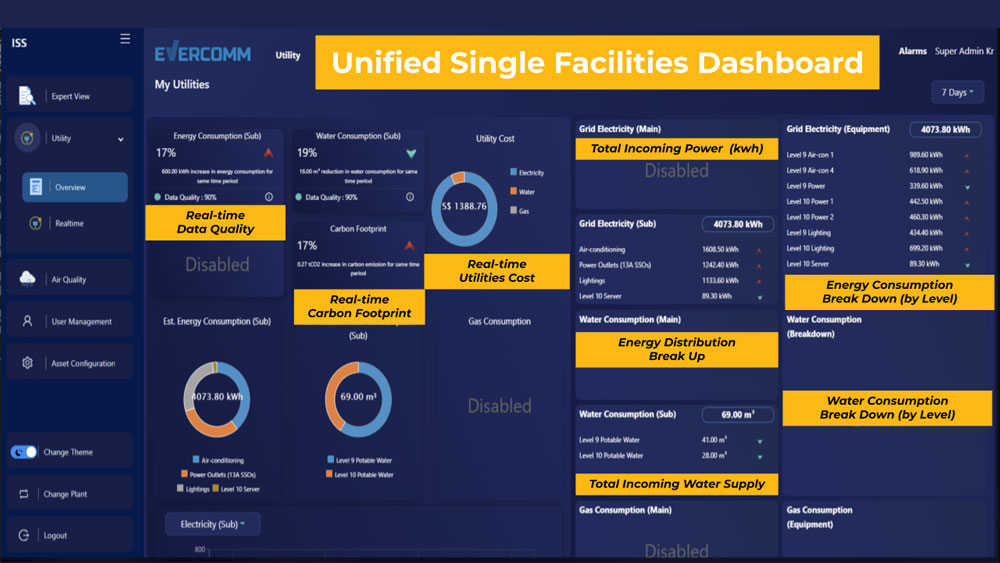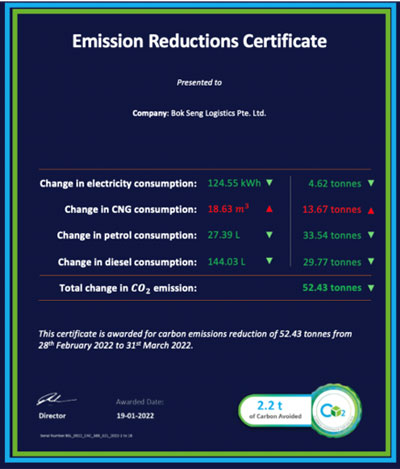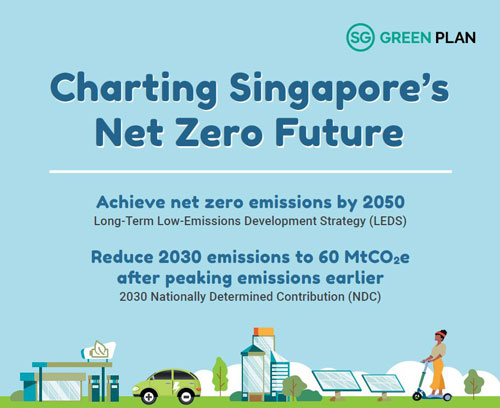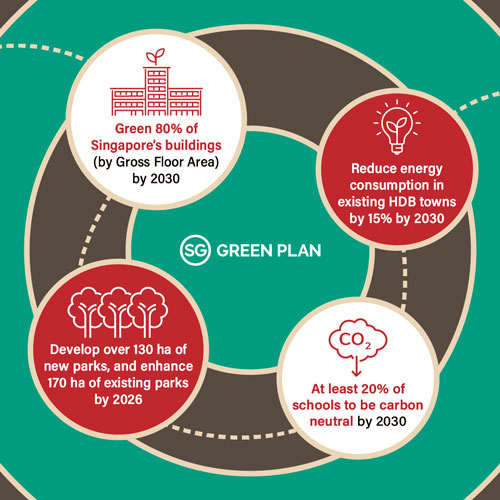
IMPROVE ENERGY EFFICIENCY FOR GREENER BUILDINGS
Identify Energy Consumption
Improve Carbon Traceability
Reduce Carbon Footprint
With the help of UnaBiz’s low-cost, energy-efficient, retrofitted, smart IoT sensors, measure and calculate energy consumption and generate data that can be aggregated and analysed. Take a data-driven approach to reduce your energy and water consumption and carbon footprint.
Through our partnership with Evercomm, an award-winning sustainability AI company, we are here to provide ESG Assurance-as-a-Service and tailor a low carbon transition plan to help you and organisations of all sizes to meet your green building and net zero goals.
Make Buildings Green and Sustainable through
UTILITY MANAGEMENT
Reduce Water Consumption
OCCUPANCY MANAGEMENT
Reduce Energy Consumption
TOILET MANAGEMENT
Increase Predictive Maintenance
TEMPERATURE, HUMIDITY & INDOOR AIR QUALITY (IAQ) MANAGEMENT
Increase HVAC Efficiency
Low-cost retrofitted IoT sensors from UnaBiz can be an energy-efficient, scaleable, and cost-effective way for you to collect data.
Blended with Evercomm’s digitalisation and analytics capabilities, you can analyse energy and water consumption data on a Unified Facilities Dashboard and receive recommendations for better utilisation of these resources.

For example, IoT water metering solutions help measure and monitor water consumption. Recording real-time and verifiable data like water usage trends, can aid in water use efficiency, transparency, and management.


With Evercomm’s sustainability platform, you can track your carbon footprint to achieve benchmarking and devise data-driven emission reduction strategies that in turn help reduce the fuel and energy costs of doing business.
You can also use the data and reports to undergo green certification against international standards.
ESG REPORTING FOR GREEN BUILDINGS
Identify Consumption
Validate Measurable Savings
Reduce Wastage
GET YOUR FREE GUIDE
Carbon Traceability – The Way Forward to Reach Net Zero Goals
Track carbon emissions for your businesses’ competitive advantage in the domain of Environmental, Social, and Governance (ESG).
Singapore is bolstering its short-term climate goals raising the national climate target to achieve “net zero emissions by 2050” as part of the Long-Term Low-Emissions Development Strategy. The country will also “reduce emissions to around 60 million tonnes of carbon dioxide equivalent (MtCO2e) in 2030 after peaking emissions earlier” as part of the revised 2030 Nationally Determined Contribution.
“By 2030 buildings will account for about 12.6 GT of energy-related emissions. But 70% of the urban infrastructure needed to accomodate a fast-growing world has not been built yet. By making the cities and home of tomorrow fit for a low-carbon age – and by updating existing infrastructure – we can reduce emissions by 5.9 Gt.” – UNEP


Singapore’s Building and Construction Authority (BCA) under the national Green Buildings Innovation Cluster Programme supports and promotes continuous improvement in building energy efficiency, and encourages occupants and tenants to adopt more energy efficiency measures within their premises through various programmes like Singapore’s Green Building Masterplan, part of the Singapore Green Plan 2030, the BCA Green Mark scheme, and Singapore Green Building Council’s green certifications.
The Singapore Green Building Masterplan aims to deliver three key targets of “80-80-80 in 2030”.
- Green 80% of buildings (by Gross Floor Area) by 2030
- 80% of new developments to be Super Low Energy buildings from 2030
- 80% improvement (from 2005 levels) in energy efficiency for best-in-class buildings by 2030
BCA has also launched a SGD30 million Integrated Facilities Management (IFM)/ Aggregated Facilities Management (AFM) Grant to help pay for adopting technologies as part of facilities management as well as the retrofitting costs, all to accelerate facilities management transformation.
DID YOU KNOW?
ESG data collected help provide organisational level ESG activity visibility to various stakeholders.
As we look to decarbonise our economy, sensor-based data are especially useful within the domain of Environmental compliance for carbon footprint reporting, and can improve resource management, safety and cleanliness in your green buildings.
*IAQ data can also be integrated with existing building management system (BMS) to eventually automate the entire HVAC (Heating, Ventilation and Air Conditioning) process.
What Our Partners Say About Us


We speak English, Mandarin, Spanish, Japanese and French





